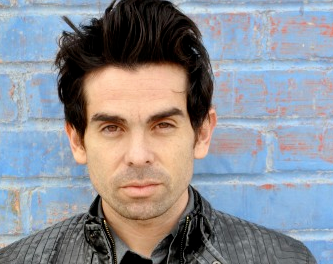To get the full weight of this meditation I suggest that you read Psalm 73 before reading on.
If ever I have thought in my head that the Psalms are practically unhelpful to the Christian walk this Psalm has put that argument to death. The principles of the problems that the Psalmist is facing and trying to wage the war of faith against are omni-prevalent (aka you face them a lot) in our western culture. The Psalmist when examining his culture is struck by the fact that there is a certain group of people that is marked by lavish prosperity and this group happens to be arrogant and wicked (v.3). Their prosperity is marked by a comfortable worry free lifestyle and abundant riches (v. 12). Through observing this prosperous group the Psalmists desires start to be enticed and he claims to be envious (v. 3), and even frustrated at his religious pursuits because he deems them worthless since they have not produced the prosperity that he is seeing around him. Prosperity is a prominent pursuit in our culture (just look at any magazine at your local grocery store) and is even in our constitution, which states that we are entitled to the “pursuit of happiness” (whatever that means). Christianity has responded to this craving for prosperity in a number of ways. One way Christianity has responded has been by buying into the desire of prosperity and shaping the gospel around the desire for it. Some have reasoned that prosperity is a good thing and God is good therefore God will give us prosperity if we trust in him (in case you were wondering that is really bad logic). But this Psalmist did not fall into that trap of atrocious logic and he still believed in the goodness of God (v. 1). So how did this Psalmist fight the fight of faith and wage war against his deceitful desires. First, the Psalmist sought to turn away his eyes from the culture onto God by seeking the presence of God (v. 16-17). His constant dwelling on the state of the wicked had caused him to desire the state of the wicked. The same way standing in front of an In-N-Out burger would entice you to desire food. But this is because he had lost a God-centered discernment which can only be attained through a constant and consistent dwelling in the presence of God through which we are able to discern the truth of God. As the Psalmist pondered the state of the wicked in the presence of God, he was able to gain an accurate view of the end of the wicked (v. 18-20). Also, he gained a God-centered view of his own state and how his sovereign God related to him. The Psalmist grasped two crucial truths that showed him that he ultimately lacked nothing. First, in his present circumstance God was sovereignly caring for him and guiding him to glory (v. 23-24). Although he was not materially wealthy he had infinitely more security than wealth could ever give him because he was being guided to ultimate glory by the sovereign hand of God. Second, the Psalmist saw that having God satisfied his soul with everlasting joy (v. 25-26). In light of the glorious God of the universe the Psalmist came to understand that he lacked nothing because he possessed everything, namely God himself, his portion forever.
I find it helpful sometimes to summarize big things into small power packed statements and I did such a thing with this Psalm:
Prosperity enticed my every desire,
as my faith dwindled like a dying fire.
To Your house I came with desperate prayer,
and was lifted up by sovereign care.
Now to God I look and adore,
As my exceeding joy forevermore.
skip to main |
skip to sidebar
recent comments
Categories
- A.W. Pink (2)
- accountability (6)
- Albert Mohler (4)
- Alistair Begg (1)
- Amillennialism (1)
- amusement (1)
- apostasy (1)
- Arminianism (2)
- Atonement (2)
- Attributes of God (2)
- authorial intent (1)
- baptism (1)
- being called (5)
- blessings (4)
- boldness (2)
- Books (3)
- branch (1)
- c.j. mahaney (5)
- Calvinism (6)
- Chelsea Kauflin (3)
- Christ (12)
- Christ our treasure (3)
- Christ's love (2)
- Christian Education (1)
- Christian Hedonism (1)
- christlikeness (5)
- Christmas (4)
- church (10)
- Church discipline (1)
- Church History (2)
- Church Merge (1)
- Church Planting (2)
- comfort (1)
- communion (1)
- Condemnation (1)
- Conscience (1)
- contemplate (1)
- Conversation (1)
- Creation (1)
- cross (16)
- D.A. Carson (3)
- Death (2)
- discernment (4)
- Discipleship (1)
- Discipline (1)
- Dispensational Premillennialism (1)
- Doctrine (1)
- Doctrines of Grace (13)
- doubt (1)
- douglas moo (1)
- Dr. Michael Horton (1)
- drinking (1)
- Effectual Call (1)
- Election (5)
- emerging church (1)
- encouragement (11)
- Entertainment (1)
- evangelism (23)
- Exegetical Fallacies (1)
- Facebook Complaining (1)
- faith (9)
- Faithfulness (1)
- Fathers (1)
- fear (5)
- Fear of God (1)
- fellowship (10)
- figs (1)
- focus (4)
- forgiveness (5)
- Francis Chan (1)
- Free Stuff (2)
- free will (1)
- fruit (4)
- full-time ministry (7)
- giving (3)
- God's glory (13)
- God's goodness (3)
- God's grace (21)
- God's Love (15)
- God's name (8)
- God's power (13)
- God's Sovereignty (1)
- God's will (8)
- God's Wisdom (2)
- God's word (27)
- Good Friday (2)
- gospel (36)
- Gospels (1)
- grace discipline pride selfishness (1)
- Great High Priest (1)
- Heaven (1)
- Hell (1)
- heresy (1)
- Historic Premillenialism (1)
- history (1)
- Holy Spirit (5)
- homosexuality (1)
- Honoring God (5)
- honoring your parents (1)
- humility (14)
- Humor (3)
- hymns (3)
- hypocrisy (1)
- idolatry (1)
- Imputation (2)
- Incarnation (1)
- integrity (2)
- intercession (1)
- Interpretation (1)
- interview (2)
- Irresistable Grace (5)
- Isaiah (1)
- Jesus (10)
- jim elliot (1)
- Joey Mejia (1)
- John Bunyan (1)
- John Calvin (1)
- John MacArthur (2)
- John Owen (4)
- John Piper (9)
- John Stott (1)
- Joseph (1)
- Joshua Ritchie (99)
- Joy (2)
- justification (1)
- kingship (1)
- Law (3)
- Lawkeeping (1)
- ligon duncan (2)
- Lordship (2)
- love (22)
- Loving God (2)
- mark dever (6)
- Mark Driscoll (1)
- marriage (4)
- Martin Luther (2)
- Matthew (7)
- mercy (5)
- Metanarrative (1)
- Ministry (6)
- missions (8)
- Money (1)
- Mormons (1)
- Mothers (1)
- Music (1)
- N.T. Wright (1)
- Narrative Theology (1)
- New Exodus Theology (1)
- New Perspective On Paul (1)
- Noah (1)
- Obedience (22)
- open theism (1)
- Parables (1)
- Parenting (4)
- passion (3)
- Pastors (2)
- Paul (1)
- peer pressure (5)
- persecution (8)
- perserverance (2)
- Pharisees (1)
- phil johnson (1)
- Possessions (1)
- Postmillennialism (1)
- poverty (1)
- praise (9)
- prayer (32)
- Preaching (7)
- preciousness of Christ (6)
- pride (2)
- priorities (7)
- promises (3)
- Prosperity (1)
- Psalm 115 (1)
- Psalm 73 (1)
- puritans (3)
- Purpose Driven Life (1)
- question (1)
- questions (3)
- Quote of the Day (4)
- Quote of the Week (4)
- radio (1)
- Reconciliation (2)
- redemption (1)
- Reformation (2)
- Reformed Theology (5)
- regeneration (4)
- Regulative principle (1)
- relationships (1)
- repentence (6)
- requests (7)
- responsibility (2)
- Resurrection (1)
- righteousness (5)
- risk (1)
- Rob Bell (1)
- Romans (3)
- Sacred Sandwich (1)
- sacrifice (10)
- salvation (13)
- sanctification (33)
- scripture (13)
- semi-pelagianism (1)
- Sermons (7)
- serving (4)
- Sex (1)
- Shai Linne (1)
- sin (21)
- Sinclair Ferguson (1)
- Solitariness (1)
- Songs (5)
- Sovereign Grace (1)
- Sovereign Grace Ministries (3)
- sovereignty (18)
- Spanking (1)
- spiritual warfare (4)
- sports (1)
- Sproul (2)
- Spurgeon (1)
- St. Augustine (1)
- suffering (3)
- Take No Glory (1)
- talia (38)
- Teaching (3)
- temptations (2)
- thanksgiving (5)
- The Cambridge Declaration (1)
- The Five Solas (8)
- The Golden Rule (1)
- The Natural Man (1)
- theology (3)
- think (1)
- Todd Friel (1)
- trial (3)
- trusting God (12)
- truth (7)
- Tulip (1)
- Valley of Vision (1)
- victory (1)
- vine (1)
- weddings (1)
- William Wilberforce (1)
- Witnessing (2)
- Word Of The Week (3)
- worship (23)
- worship praise (2)
- Wrath (1)
Blog Archive
-
▼
2010
(71)
-
▼
March
(15)
- 4 Views On The Millennial Reign Of Christ
- The Cross-Centered Prayer Life
- He Came Not To Be Served
- Congratulations Jenny!
- it is all of grace.
- My Incomplete Joy
- You Are What You Worship
- Confusion IS an Answer
- Do Not Shut The Kingdom of Heaven
- Clarifying Insurance for Assurance
- Insurance for Assurance
- Meet Mollie.
- Joy that Doesn't Come from Prosperity
- Hope for the Future
- Perfectionism v. Glorification
-
▼
March
(15)
| Blog: |
| TALIA |
Topics: |
| gospel, theology, encouragement |
















No comments:
Post a Comment